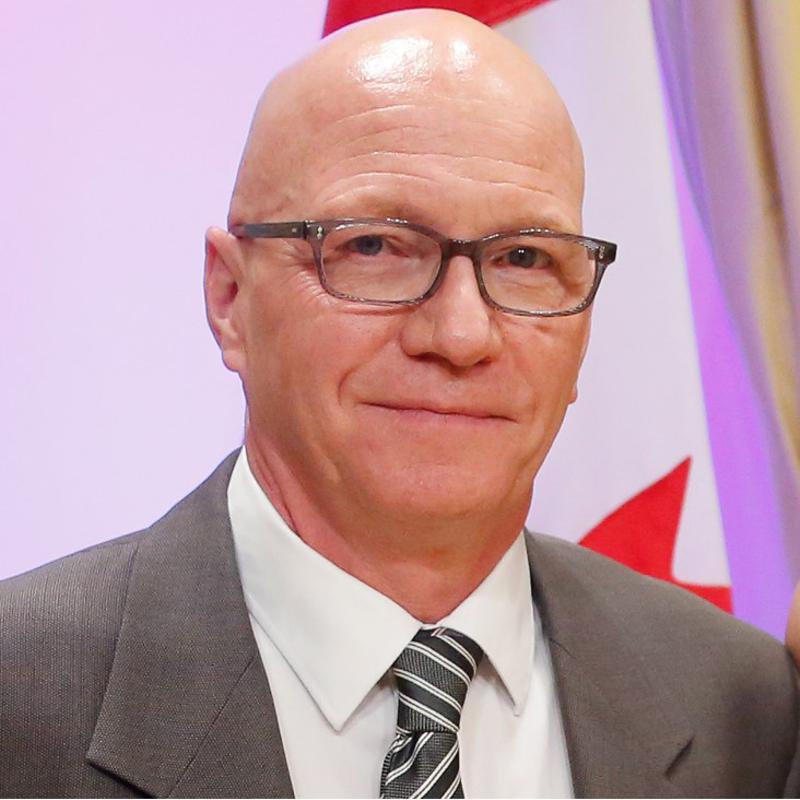Four days before Alberta’s provincial election and an aggregate of polls is so far showing the United Conservative Party will win a tight race.
But pollsters were dead wrong in Alberta’s 2012 election. Alison Redford’s Progressive Conservative party won a handy majority over Danielle Smith’s upstart Wildrose Party despite a series of polls in the weeks before the election that predicted a Wildrose win.
If either party wins a tight race, they will probably need to put aside their partisan differences and try to collaborate on major policy initiatives, said Sarah Biggs, a political strategist and lobbyist who managed former UCP MLA Leela Aheer’s leadership campaign.
“No matter who wins on the 29th, they still have to remember that half of the province voted against them,” Biggs said.
“We are a two-party system and they are going to have to try to find some middle ground to not alienate more people, even more than we're seeing right now.”
Biggs is one of four political observers interviewed by The Tyee. We asked them how either a UCP or NDP government would govern the province’s economy, education and health-care systems, and the environment.
Economy
As Andrew Nikiforuk recently observed, Alberta’s politicians don’t have the backbone to end the province’s economic dependence on oil. And so, once again, for both parties, expansion of the energy sector is the main platform for the economy.
Political analyst and campaign strategist Najib Jutt said there is little foresight by either party about where jobs will come from when the price of oil drops.
“In terms of energy, our two major political parties are two sides of the same coin, and that coin is owned by oil and gas corporations,” said Jutt, who is advising Alberta Green Party Leader Jordan Wilkie.
Though the UCP has promised to fight Trudeau’s Just Transition, a plan to shift Canada’s workforce into a clean-energy economy, the party has accepted the need for economic diversification and its economic plan includes industry incentives and municipal infrastructure investments.
As recently as 2020, former premier Jason Kenney said diversification is a luxury Alberta couldn’t afford. That has changed.
“They have finally started talking about diversification,” Biggs said with a laugh. “They finally accepted the word.”
The UCP issued a raft of incentives to attract big players from the film and television industry to the province, and Biggs expects those kinds of incentives will continue.
Similar schemes have been proposed by the UCP for forestry, agri-business and skilled trades, while the NDP plan includes incentives for diversification through tax credits for petrochemicals, clean tech, carbon and critical minerals and advanced manufacturing.
Robert Houle is a research fellow at the Yellowhead Institute, an Indigenous-led research and education centre at Toronto Metropolitan University. He anticipates an NDP government would bring back the green energy projects and other initiatives it introduced during its first term, including those aimed at increasing First Nations participation in the green economy.
Along with diversification, Mount Royal University political science professor Lori Williams said affordability is a key issue in Alberta’s economy. The UCP’s affordability payments don’t compensate for the financial burdens created by the elimination of rate caps for utility bills and auto insurance, she said.
“This puts them in a bit of an ambivalent place,” Williams said. “They seem to be out of touch with the experience of high costs for ordinary Albertans, because most Albertans aren't experiencing the comfort and the surplus that the government is.”
Biggs also said the UCP will need to address the electricity and insurance caps, which the NDP have promised to restore.
Both the UCP and the NDP are on a spending spree, Biggs said, but whether they can deliver on their many promises depends on the price of oil since neither is willing to introduce a sales tax to buffer against a future bust.
Education
Education has been a hot-button topic in Alberta throughout the UCP reign as the party upended the province’s education system. The Kenney government sharply expanded fully funded charter schools, implemented cuts to staffing and imposed a new curriculum that 56 of 61 school boards refused to pilot because of its poor quality.
Political observers expect an NDP government to immediately begin the process of replacing the K-12 curriculum with the previous curriculum, which had been produced through an extensive process over a decade.
Jutt said if the UCP wins another mandate the party would likely see no reason to withdraw or redraft the curriculum. And he said a UCP government would likely expand the number of private and charter schools.
“You can always rely on a Conservative government to do what is best for the private industry,” he said.
Williams said the NDP are in a bit of a quandary over private and charter schools because they understand the need to allow some choice to appease a significant portion of the population, including religious groups.
“It is going to be a tricky balancing act for Rachel Notley,” she said. “Up until this point, even on private school funding, even though she has opposed that, she has allowed that to continue.”
Houle expects an NDP government would increase formal scrutiny of these private and charter schools to ensure they are not teaching problematic ideologies or excluding LGBTQ2S+ students.
The major difference between the parties, Williams said, is that the NDP have promised to hire 4,000 new teachers and about 3,000 educational assistants and support staff for a total investment of about $400 million.
In contrast, “the UCP’s proposals seem to be a little on the vague side,” Williams said.
The UCP also threw the province’s post-secondary education sector into turmoil with major cutbacks to universities while they increased funding for skills and trades training.
“They believe everything should be paid by the user and I think they will continue the cuts and push post-secondary to figure out other ways to fund themselves,” Jutt said.
Williams said the Notley government has talked about increasing spaces in universities, particularly for health-care workers to address the province’s chronic shortages.
Both parties have promised to freeze tuition at universities.
Health care
All four political observers expect both parties to continue the health-care policies they have advanced in the past.
Houle said the UCP, based on its previous record, will abandon its public health guarantees and continue the expansion of private for-profit health care.
During this election, the UCP has repeatedly denied it will implement health spending accounts and privatize hospital operations, both proposals that Smith mused about for years before she became the party’s leader.
Alberta has always had some degree of private health-care delivery, Jutt said. The question is whether the government covers the costs or patients pay out-of-pocket.
“The UCP wants us to pay out-of-pocket for everything,” Jutt said.
“They believe private is the best way to run things,” he said, adding however that “health care around the world has shown that health care that is publicly delivered has the best results and outcomes.”
A recent report from the Parkland Institute found outsourcing publicly funded surgeries to for-profit clinics in Alberta reduced surgery volumes and capacity in public hospitals.
In the short term, the NDP won’t have any option but to honour private contracts already in place, Williams said, “but I expect there will be an evolution to the kind of privatization that delivers more in the way of care at a lower cost.”
“We have shortages everywhere in terms of health-care professionals. So outsourcing is probably the only thing they can keep doing,” Jutt said. “It's just a matter of who pays.”
The most direct and consequential thing that the NDP has committed to is being respectful with health-care workers, Williams said.
“Under Jason Kenney, and Tyler Shandro in particular, there was a lot of damage that was done and we're seeing the effects of that,” she said, referencing the high number of vacant family practitioner residencies in Alberta.
“It looks like docs are choosing not to stay in or come to Alberta to do family medicine because of something that is happening in Alberta.”
The NDP is making extensive, and expensive, promises about health care. But there is the same historical hitch — the price of oil.
“Everything that we can do in health care all depends on the revenue we are getting,” Biggs said.
“If we do not have the money to fix health care, then it won't get done.”
Environment
UCP and NDP environmental policies will remain industry-friendly, despite the wildfires burning across the province.
Robert Houle said the UCP climate policy is status quo, and they will continue to spend public money fighting Ottawa on environmental policies needed to avoid future disasters.
The NDP, Houle said, “are still committed to continuing with the resource industry as it stands.”
Williams said the UCP will continue “being a champion of energy and the image at least of balancing energy and the environment will not be the emphasis by the looks of things so far.”
Jutt said UCP climate policy is laughable.
“Their net-zero goals are ridiculous,” he said, “They mean nothing.”
“All of the large corporations in oil and gas have net-zero targets, which mean nothing,” he said. “They have made no efforts to hit any of them.”
The UCP retained almost all of Notley’s climate action plan, Williams said.
The NDP knows climate action is a hard sell in Alberta, Jutt said. “That is why the NDP has moved further right on the portfolios of climate and energy.” ![]()
















Tyee Commenting Guidelines
Comments that violate guidelines risk being deleted, and violations may result in a temporary or permanent user ban. Maintain the spirit of good conversation to stay in the discussion and be patient with moderators. Comments are reviewed regularly but not in real time.
Do:
Do not: